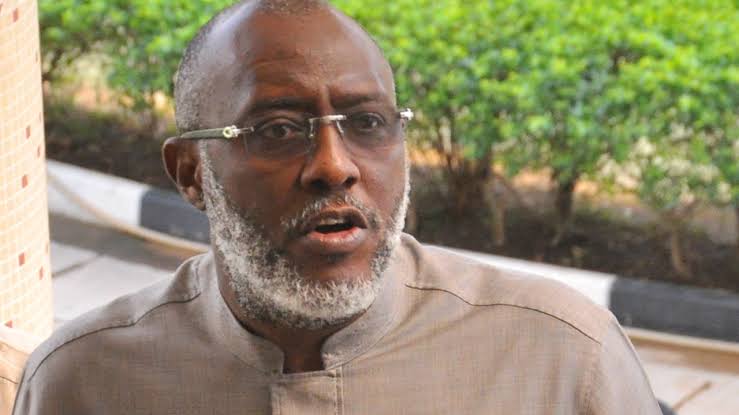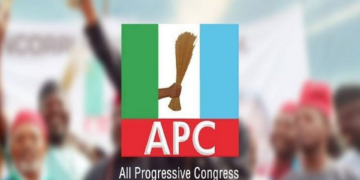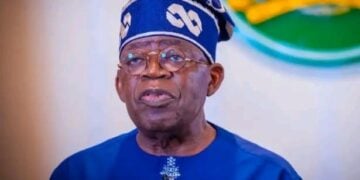Former national publicity secretary of the Peoples Democratic Party (PDP), Chief Olisa Metuh, has called for the amendment of the 1999 Constitution to statutorily provide for the zoning of national elective offices to guarantee political stability in the country.
The former PDP spokesman who quit partisan politics in 2022 to pursue national and global advocacy engagements in democracy and good governance made the call in a lead lecture at the maiden international conference of the Department of Political Science, Nnamdi Azikiwe University, Awka, Anambra State last Thursday.
Metuh also demanded for the amendment of the nation’s constitution to prohibit party defection by elected government officials at all levels during their term in office.
He also called for political accountability among parties by instituting legal provisions requiring parties to submit ideologically grounded, program-specific manifestos before elections.
Metuh, who shared his deep political experience in the lecture entitled Institutionalizing Political Parties in Nigeria for Good Governance, Security and Development: The Case for Ideological Depth, Stability, and Democratic Consolidation, critically examined issues and challenges of party politics, democracy institutions and governance in Nigeria and Africa and preferred solutions.
Detailing his experience and suggested solutions under what is no known as the Metuh Political Doctrine, Metuh identified zoning and power rotation as a pathway for national integration given Nigeria’s ethno-regional diversity.
Calling for defined legal provision for zoning, he said, “Though zoning has often been practiced informally within parties, its inconsistent application breeds tension and perceptions of exclusion. Institutionalizing regional zoning through constitutional provisions would create predictability, promote inclusiveness, and enhance elite consensus”.
Making a case for prohibition of defection, Metuh stated “the high rate of defections among elected officials erodes party identity, weakens the mandate of the electorate, and fosters political instability.
It also incentivizes opportunism over ideological loyalty.
“To strengthen party institutionalization, this paper recommends amending the constitution to prohibit defections by elected officials during their tenure, with clearly defined and narrowly tailored exceptions (e.g., merger or collapse of party). This aligns with the principle of electoral mandate fidelity”.
On the calls for legal requirements on party ideology Metuh identified party political ideology as the bedrock for the normative and policy framework that should determine and guide party actions for which it must also be held responsible.
However, lamenting the situation on ground, Metuh said, “in contrast, Nigerian parties have largely functioned as electoral vehicles for elite competition, lacking clear ideological distinctions. The absence of ideology impairs voter alignment, weakens accountability, and makes parties susceptible to elite capture and factional crises.
“Party manifestos, when well-crafted and publicized, serve as instruments of policy communication and voter engagement. They facilitate programmatic competition, where parties are judged by their policy proposals rather than patronage networks. In Nigeria, party manifestos are often generic, recycled, and poorly implemented. Institutionalizing manifestos through legal mechanisms and voter education would compel parties to abide by their declared programs and provide a basis for electoral accountability.
Metuh also called for the breaking of the patronage cycle where parties depend heavily individuals leading to elite domination and clientelistic politics, which according to him weakens party autonomy and sidelines grassroots participation. “To institutionalize parties effectively, a reformed funding architecture is essential” he said.
He called for an Independent Party Finance Commission to audit party finances and sanction noncompliance, adding that these reforms would empower parties financially while reducing dependence on moneybags and preserving democratic accountability.
The acting vice chancellor of Nnamdi Azikiwe University Awka, Prof. Carol Arinze-Umeobi, applauded the head of Department of Political Science and his team for breaking the jinx and organising the department’s first-ever international conference.
She described the theme of the conference as quite germane to the development challenges of African countries, noting that it is utterly disappointing that decades after independence, most African countries are mired in underdevelopment, bogged down by a miasma of security challenges of armed conflicts within and between countries, resurgent Jihadist movements, secessionist movements and electoral fraud.
Arinze-Umeobi said these issues have led to bad government and bad governance with the political class exploiting the great divides of religious and ethnic identities in their political contestation to remain in power; prompting a re-emergence of coup d’etats and military governments; nonchalance on the part of the governed and a host of other challenges.
The professor of Law wondered if the colonial masters of yore can still be justifiably held responsible for this sad state of affairs.
The acting VC noted that the big challenge is how citizens who bear the ponderous yoke of underdevelopment can be conscienctised to take their destinies in their own hands, to hold governments responsive and accountable.
We’ve got the edge. Get real-time reports, breaking scoops, and exclusive angles delivered straight to your phone. Don’t settle for stale news. Join LEADERSHIP NEWS on WhatsApp for 24/7 updates →
Join Our WhatsApp Channel










